The Rule of Law Symposium
On Friday, I watched the Prosecutor General of Ukraine deliver our opening address during an active air strike and discovered that the US Ambassador to the Czech Republic has cornhole at his home, but I’m getting ahead of myself.
This week, the CEELI Institute Board flew in from around the world for the annual meeting. Our team acted as you would expect when over sixty board members will arrive at your door to see what you’ve been up to for the past year; we were busy. On Monday, one of CEELI’s leadership heads, Quinn, knocked on my door, strode into my office carrying an extensive list, and pulled up a chair beside my desk. As she thoughtfully thumbed through the pages, I grabbed something to write with and sat on the edge of my chair, indicating that I was “at attention” and ready to do whatever task was about to come out of her mouth. Yes Quinn, I’m aware that you’re pairing each of our well-respected and experienced staff with several board members to connect with during their visit. Oh, I’m getting board members too? I tried to conceal how touched I was to be included. Quinn looked at the list a final time and decided to pair me with the former Vice Mayor of Prague 9 and Mark Ellis, the Executive Director of the International Bar Association. The tone of the week had been set.
The Board began to arrive on Thursday, and we held a reception dinner in our backyard. It was a typical backyard dinner at the CEELI Institute: on the rooftop of Vinicni Altan, an intricately designed wooden gazebo in the Grébovka Vineyard overlooking Southern Praha. The Vinicni Altan gazebo is Praha’s only open-air wine garden, and our “backyard vineyard” is the only remaining vineyard in Prague 2. Among the attendees was the Personal Representative of the Canadian Prime Minister for the G20 Summit, the Associate Executive Director for Global Programs of the American Bar Association, judges from the 2nd Circuit, and the former President of the Special Tribunal for Lebanon. The Board members were excited to see each other and chatted happily over Czech delicacies as the setting sun filled the wooden palace with light. Our team let out an invisible sigh of relief. So far, so good, but we knew the actual show was tomorrow.
The Rule of Law Symposium began at 8 am sharp for the CEELI Institute team, and it was all hands on deck. Luckily, after multiple staff meetings and copious planning by our MVPs, the entire day went off without a hitch. The Symposium consisted of three panels, each pertaining to Ukraine and Russia, and the first certainly set the bar. Three panelists discussed the possibilities and urgencies for the international community to establish a tribunal for the crime of aggression. Keeping the international community focused on the war and the situation in Ukraine takes resources and energy, and Putin’s main weapon is time. But if the international community focuses on the EU special tribunal, it retroactively ensures that attention never wanes from Russia’s invasion of Ukraine. I recommend reading my peer’s blogs at the United States Institute of Peace, who has written eloquently on the trouble of holding Russia accountable on the international stage.
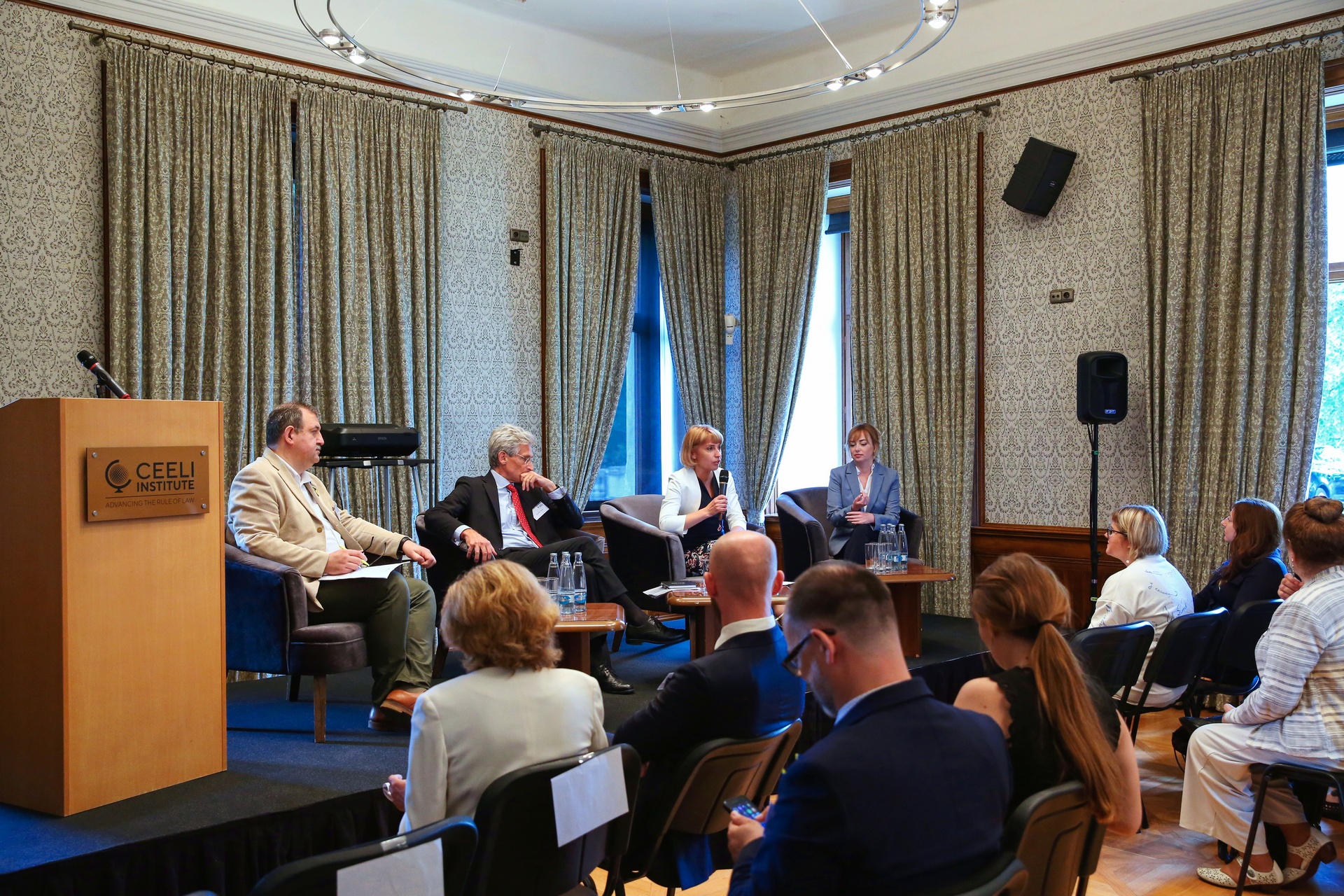
In a nutshell, the ICC can’t prosecute the crime of aggression in this case without amending the Rome Statute, which Ukraine has not ratified. Unlike war crimes, crimes against humanity, and genocide, the Rome Statute’s crime of aggression is very limited. It doesn’t give the ICC jurisdiction to go after a non-party state that’s committed crimes against a party-state. So the ICC can only pursue a crime of aggression against a state party that has declared their acceptance of the Kampala Resolution (crime of aggression in the Rome statute, which only 46 states have done). Since Russia is a non-signatory, the ICC has no jurisdiction. Thus, it’s easier to create a new tribunal for this particular situation than to amend the Rome Statute. But the panelists emphasized that the tribunal must be complimentary to the ICC; it shouldn’t endanger the role of the ICC. So the tribunal would only be for this unique situation. It wouldn’t serve as a prevalent court for any case of aggression in the future. It would also only be specific for the crime of aggression because the international community has no interest in interfering with the ICC’s jurisdiction. But one of the panelists made an interesting point. He suspects that if the international community can get some of the major players in, like the US, UK, and Germany, they’ll want to ensure that the tribunal is specific to one crime: Russia’s crime against Ukraine. The US has been clear that it doesn’t want to create a precedent tribunal that will come back and focus its attention on alleged violations from the US. What an intriguing idea. Maybe ensuring the defined mandate, jurisdiction, and time frame of the special tribunal is to protect the future power of the ICC. Still, it also eases up some of the concerns amongst the developed, major countries as to whether or not they’re creating something that’s going to come back and haunt them.
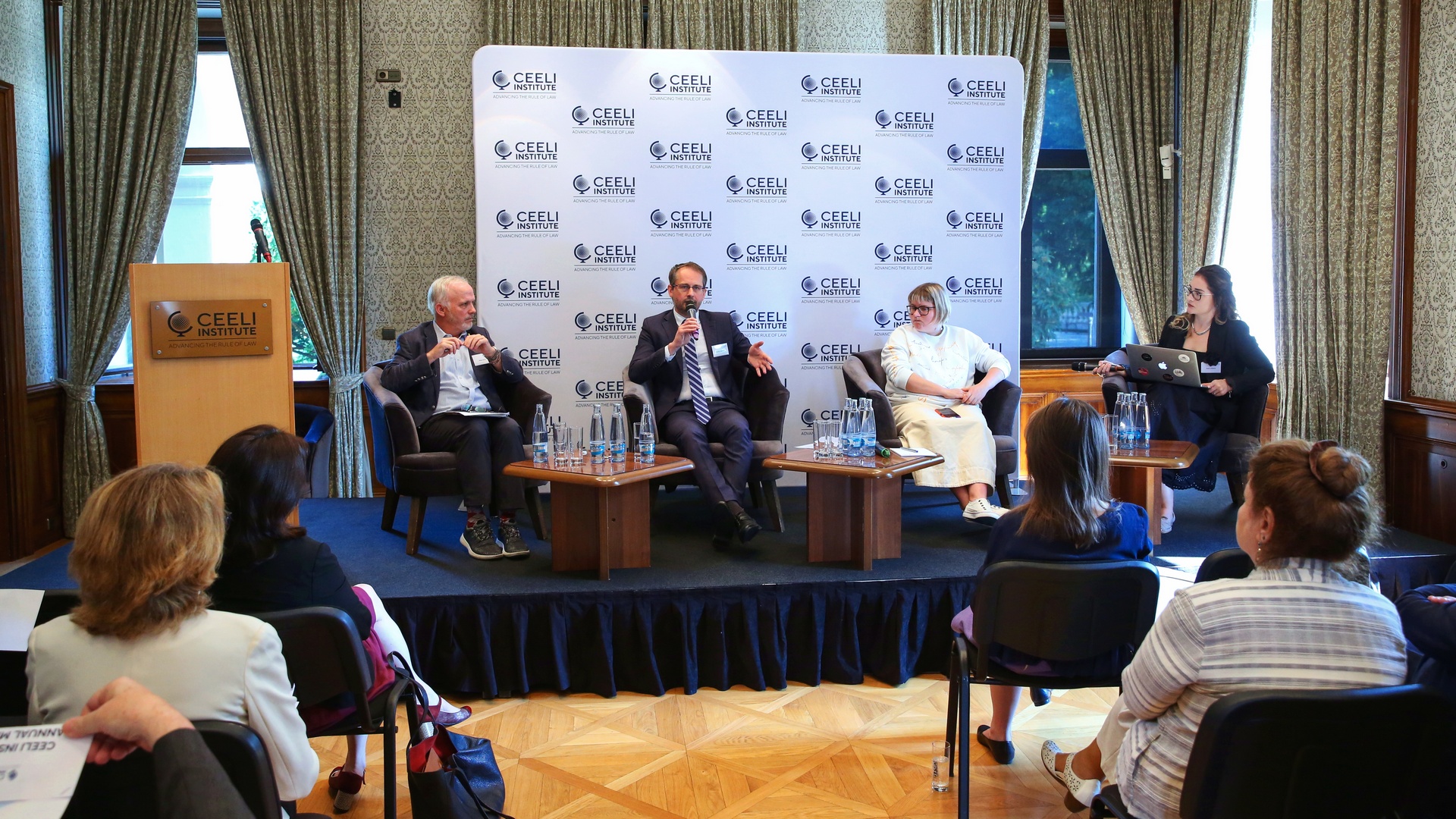
Ukraine’s justice system faces the brunt of the cases. There’s over 90,000 war crimes flooding the docket of 5,000 judges. Furthermore, there’s been shelling, blackouts, and investigators don’t have access to certain areas and cannot gather evidence, so no one knows how many uncounted atrocities there actually are. In Ukraine, there’s no precise description of war crimes, and only one article covers all of them. Because Ukraine lacks a lot of international law, the quality of the cases is a problem. I felt a small swell of hope thinking about the 32 Ukrainian lawyers we would be training in this precise area next month.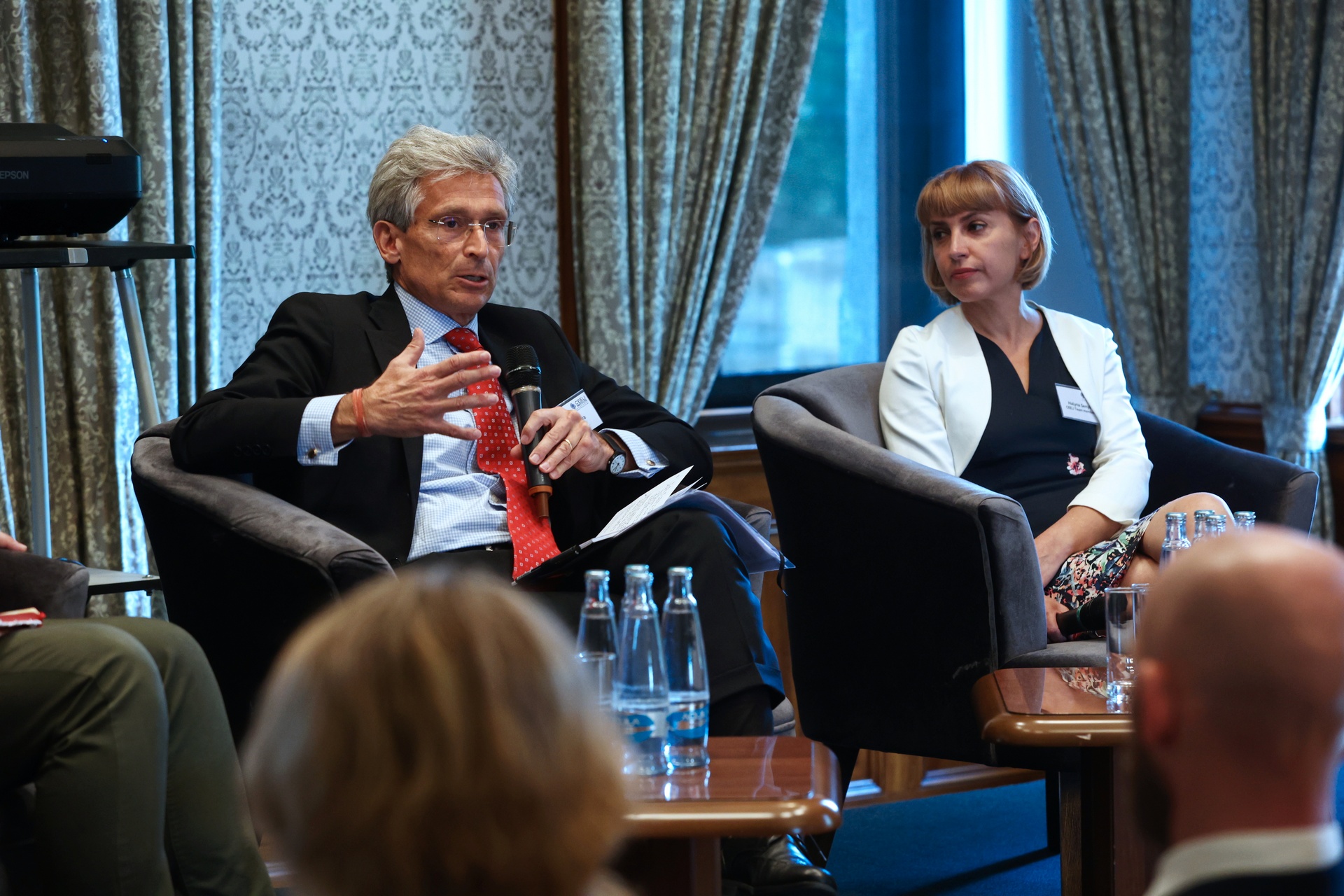
Before our virtual meeting with the Prosecutor General of Ukraine, I had envisioned a scene where he would be in a dignified office space, perhaps seated behind a grand wooden desk, with his hands calmly folded, staring heavily at us, and the Ukrainian flag proudly displayed behind him. Instead, Prosecutor General Kostin walked briskly down a wide basement corridor while carrying his laptop. He was in the bunker of the Office of the Prosecutor General because Kyiv was currently under a missile attack, including ballistic missiles. He dryly noted the symbolism, today they had a delegation of African leaders in Kyiv, including Presidents, Prime Ministers, and Ministers of Foreign Affairs. Prosecutor General Kostin expressed his gratitude for participating in the Rule of Law Symposium. He profoundly values the CEELI Institute’s support in Ukraine’s quest for accountability and justice, specifically our practical work with their justice sector representatives. He described Ukraine’s three specific strategies for achieving justice and gave a recent example of the devastating international law violations the Ukrainians suffer. Since the 24th of February 2022, the first day of the full-scale invasion, the hydroelectric dam has been under the effective control of the Russian Federation. As an occupying power, Russia had a legal obligation to take all feasible measures to prevent the release of dangerous forces and to refrain from any action that would risk such release. The destruction of the hydroelectric dam has led to a sharp rise in the water level in the deeper river, which has resulted in dozens of settlements being submerged, thousands of homes destroyed, drinking water being polluted, and farming land flooding. It’s becoming a manmade ecological and humanitarian disaster. The Prosecutor General declared this action can be readily equated with the use of weapons of mass destruction. He was there last weekend with a team of investigators, prosecutors, and a team from the Office of the Prosecutor of the ICC. They saw it with their own eyes and talked with the rescue team and officers, who informed them of how many civilians and rescue and police officers were wounded and killed during the evacuation after many villages and towns were flooded. Prosecutor General Kostin said this additional level of crimes committed by the aggressor is evidence of Russia’s intent. As for the special tribunal, in a few weeks, they’ll officially launch the International Centre for the Prosecution of the Crime of Aggression, housed by the Eurojust in the Hague. It’s not only the starting point preceding the special tribunal but a clear message that the international community will take matters into its own hands to ensure that justice is served.
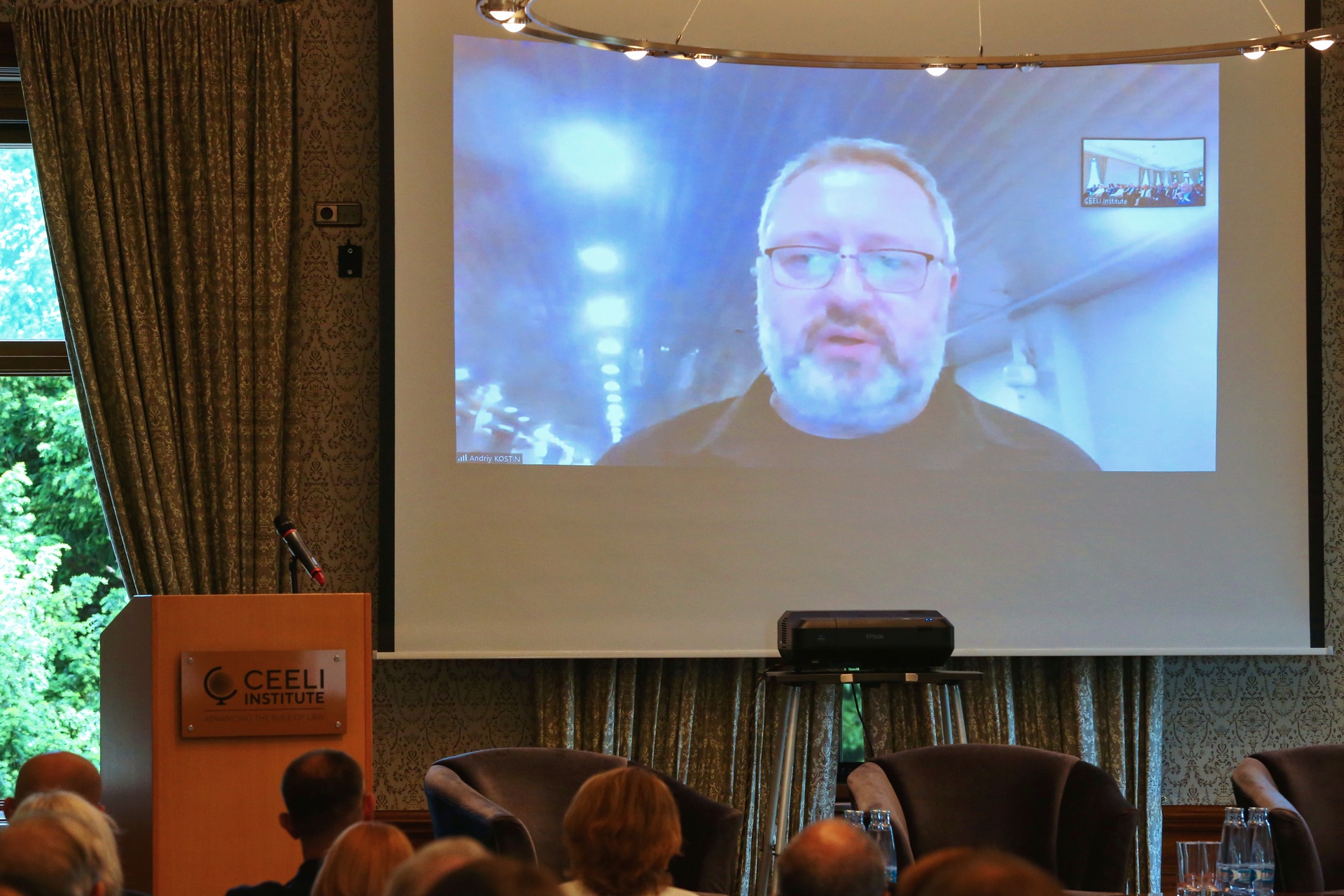
When one of the board members asked what the legal community of the world and local legal communities can do best to support Ukraine’s work, Prosecutor General Kostin said that the best thing the legal community can do is be vocal, independent, and not be limited by political concerns. Change will come if international community starts to admit that there’s a war of aggression, and there’s an aggressor and a victim of aggression. It’s not a 19th-century war style, where two countries fought for the territory of a third; Ukraine is a victim of the aggression of the Russian Federation. He closed his address with the main slogan of Ukraine’s work: we need to be united for justice. Justice for Ukrainians means justice for the world, on the global level, and justice for those who still have no chance of receiving it in other parts of the world. And it commemorates those who haven’t received their manner of justice in all previous wars and conflicts. We should be united, Prosecutor General Kostin said, “To show everyone that the rule of law means more than the rule of force.”
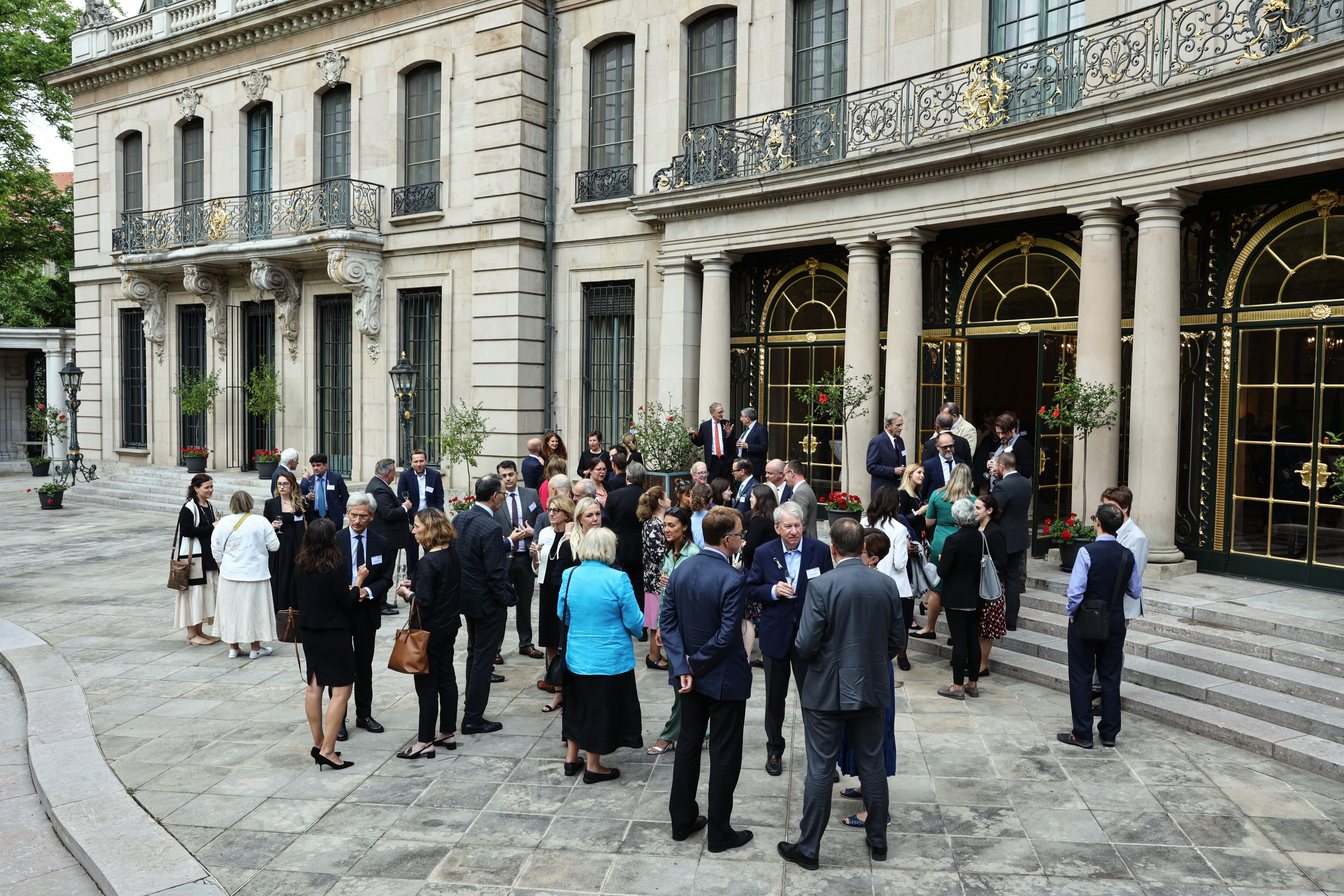
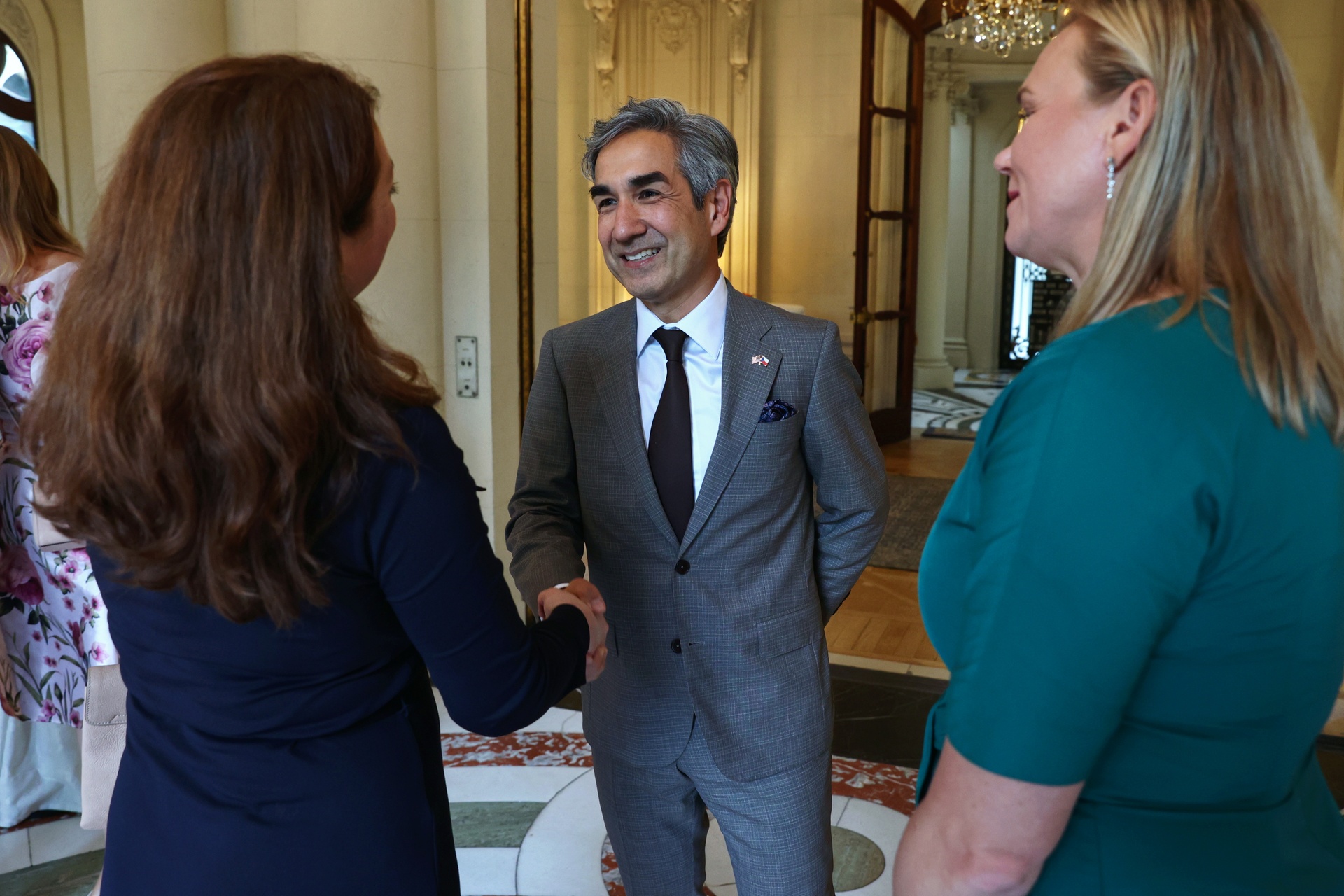
In the early evening, we arrived at the home of the US Ambassador to the Czech Republic. The marble floors were perfectly shined, and I felt guilty clacking around in my heels. There was a banquet, fine wines, and even better company. Everyone was delighted with the Rule of Law Symposium, and we chatted about the different panels, the member’s fascinating legal backgrounds, and how I had secured the best legal internship opportunity. Ambassador Sabet had just flown in from my hometown, DC, and although he must have been jetlagged, you certainly couldn’t tell. He was charming, hospitable, and gave an excellent toast. It was the cherry on top of a perfect day. As I wandered around his elegant backyard, I noticed two cornhole boards with American flag patterns and a spikeball set behind one of the Doric columns. Looking around at my companions in their suits and dresses and then at my green, silky jumpsuit and white heels, I said to myself, “Next time.”
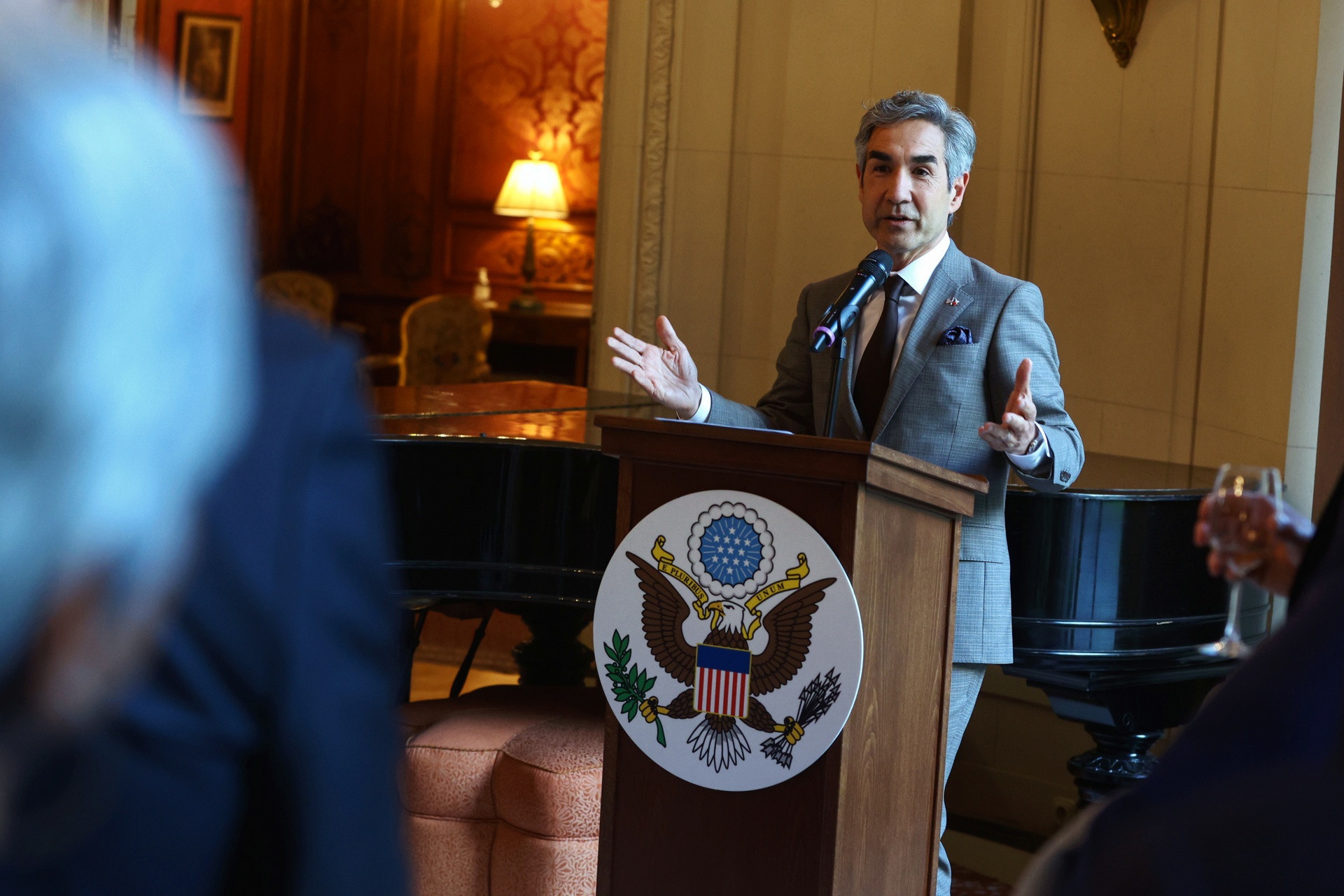
Once again, these spectacular photos are courtesy of the heart of the CEELI's Institute's Communications department, Lauriane Labourel.